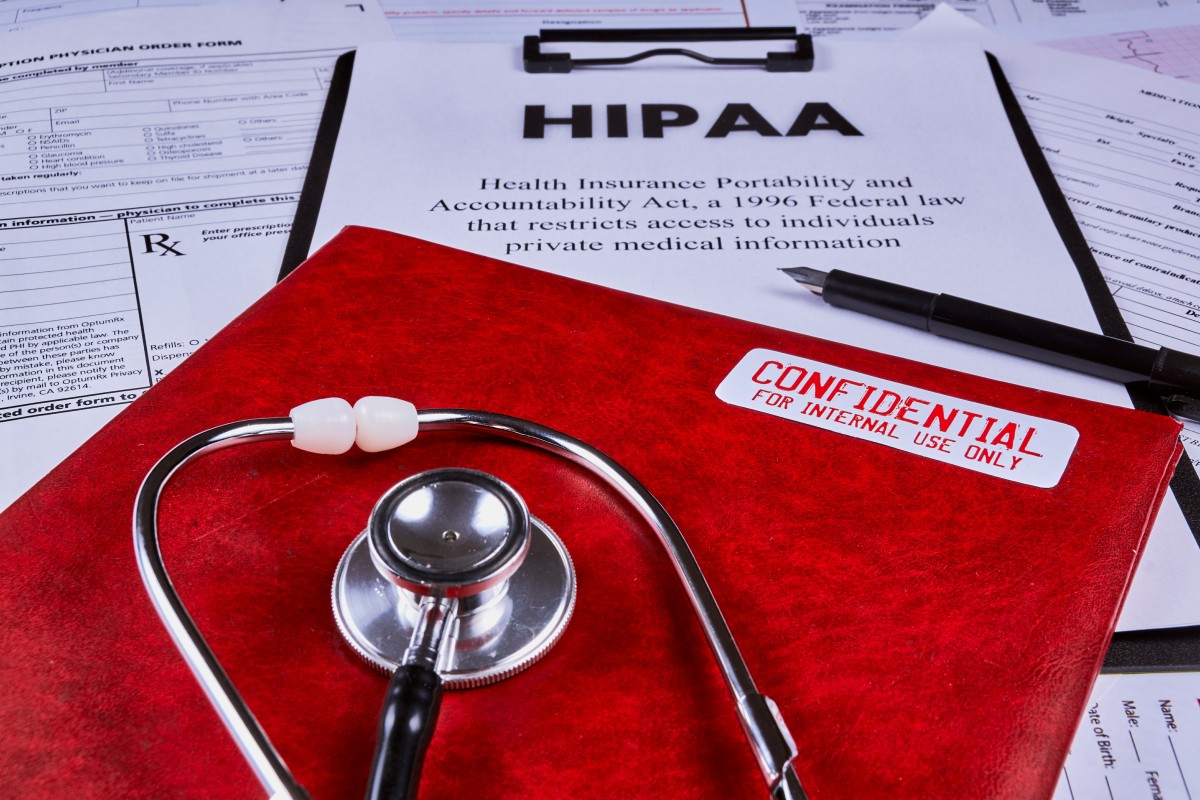Using Patient Education Videos to Support Preventive Care Strategies
As a healthcare provider, you know prevention saves lives. From routine screenings and lifestyle counseling to vaccinations and early detection,...
 Despite the creation of HIPAA regulations nearly 30 years ago, there still seems to be quite a bit of difficulty when it comes to understanding what those regulations require. Many practices are just too small to have a full-time compliance officer or even an IT team. And, when it comes to managing the day in, day out aspects of a busy medical or dental practice, there’s a lot that requires your attention before even getting to IT. And yet, without IT, the modern healthcare landscape wouldn’t exist. And, without HIPAA regulations, sensitive patient data would likely be easily accessible to malicious actors.
Despite the creation of HIPAA regulations nearly 30 years ago, there still seems to be quite a bit of difficulty when it comes to understanding what those regulations require. Many practices are just too small to have a full-time compliance officer or even an IT team. And, when it comes to managing the day in, day out aspects of a busy medical or dental practice, there’s a lot that requires your attention before even getting to IT. And yet, without IT, the modern healthcare landscape wouldn’t exist. And, without HIPAA regulations, sensitive patient data would likely be easily accessible to malicious actors.
IT is required for your practice. HIPAA is required for your patients. And, for many practices, help with HIPAA compliance is also a cost of doing business. The cost of non-compliance is, in fact, far more than many practices can handle.
Quick Links
Actionable Ways to Improve Practice Security and HIPAA Compliance
Being HIPAA compliant means adhering to strict standards and regulations set forth by the Health Insurance Portability and Accountability Act of 1996 (HIPAA). The law was designed to ensure the privacy and security of protected health information (PHI) and other medical data. To remain compliant with HIPAA, a company must adopt specific procedures and policies that protect patient information from unauthorized access or improper use.
First and foremost, organizations must have measures in place to prevent accidental or intentional disclosure of protected health information (PHI). These measures should include restricting physical access to records containing PHI and using strong encryption methods when sending out emails. They should also be able to demonstrate proper disposal methods for any printed documents that contain PHI.
A key, but often overlooked, component of HIPAA compliant organizations is that all employees must be trained to protect patient PHI. It is essential for staff members to understand the importance of maintaining confidentiality as well as how to securely transmit information via the internet, email, or other digital systems. Further, it is imperative that they know how to identify, report, and respond appropriately when there is suspicion of a breach or violation of HIPAA policies.
In order to maintain a high level of HIPAA compliance, medical and dental practices must not only create policies to protect PHI but also continually review them on a regular basis in order to update them according to technology upgrades and the ever evolving threats from cybercriminals. To assist in this effort, practices should conduct periodic audits to detect potential vulnerabilities that could lead to unauthorized access or transmission of PHI.
 Costs of HIPAA Non-Compliance
Costs of HIPAA Non-ComplianceFor many organizations, the cost of a healthcare breach is far from an everyday worry. As with most crime victims, many people believe these incidents happen to someone else, another practice. Further, as a practice manager or owner, your focus is not security risks, but that doesn’t mean they don’t exist.
Unfortunately, whether you think you’re too small or too well protected, there’s a vested interest in those records as some electronic health records (EHR) can fetch up to $1,000 on the black market. Which makes every practice a potential target.
As with all security breaches, there are multiple factors to consider. There’s the initial financial cost of the breach. In 2022, the cost of a healthcare breach rose to $10.10 million dollars, an increase of nearly 10% from 2021. Expenses are required to either address the vulnerability, retrieve the information, secure the network, cover legal costs, and notify and possibly pay restitution to those who had PHI exposed by the breach. Hiring outside support to help with all of those concerns adds up quickly and, for many small medical and dental practices is, simply, overwhelming. The cost alone is usually a significant enough concern to motivate practice managers and owners to act.
But wait, there’s more. The financial hits will likely keep coming for many practices as there is a significant reputational impact as well. Whether it’s word of mouth from those impacted or a quick Google search for data breaches, or even just the practice name, will let potential new clients know their data’s just not that safe with you.
And finally, there are the legal ramifications. While there are HIPAA violation fines, it is possible for those who knowingly or negligently expose PHI to also receive jail time.
The short version is that failure to comply with HIPAA regulations can cost you your practice or many years to rectify and recover, depending on the size of your organization. The cost of HIPAA compliance? Thankfully, much lower.
A HIPAA risk assessment can take a look at every aspect of your practice security, including email. Encrypted HIPAA email is critical and also only part of the email security equation. Protected Health Information should not travel in or out of your general email inbox (Gmail, Yahoo!, etc.). Nearly all data trusted to your organization should be encrypted. HIPAA encrypted email can protect your accounts from unsolicited emails, which means malicious messages will never make it to your inboxes.
Additionally, HIPAA compliance requires:
In addition to email, you need to know where your IT security tools are vulnerable. From your firewall to your anti-virus software, keeping tools up-to-date with the latest version and any required patches is essential. Software companies, particularly those in the security space, regularly release patches and updates to combat known vulnerabilities or identified weaknesses. Unfortunately, unpatched software is a significant risk to your own data security.
It’s also critical to make sure your patient data is securely backed up at all times. Utilizing an off-site cloud backup means your PHI and business financial data are safe and secure. Without a reliable back up, what starts as a small inconvenience can become a major disruption. Cloud backups mean you have very little downtime when disaster strikes.
 How a HIPAA Risk Assessment Can Help Save Money and Keep You Secure
How a HIPAA Risk Assessment Can Help Save Money and Keep You SecureThese are just a few examples of the biggest gaps in HIPAA security, and the kinds of vulnerabilities a HIPAA risk assessment can help you identify, and rectify.
Still, HIPAA compliance starts with you. That means establishing policies and procedures to not only secure patient data but ensuring practice success and adherence. And, as noted above, that also means training your staff to understand the importance of HIPAA compliance and the procedures they’re expected to follow.
And, when it comes to your network, a HIPAA risk assessment can provide detailed information regarding both internal and external vulnerabilities that leave your patient’s data, and your practice, at risk.
Working with a HIPAA compliance partner and conducting an audit is a great way to not only build and implement a HIPAA compliance plan, but to also have it tailored specifically to your needs and the size of your practice.
If you’re ready to ensure the security of your patient data and protect your practice from unnecessary and burdensome financial and legal consequences, get in touch with the iCoreConnect team today. We pride ourselves on finding and delivering the best ways to keep your practice’s workflow moving efficiently and effectively…and securely.

As a healthcare provider, you know prevention saves lives. From routine screenings and lifestyle counseling to vaccinations and early detection,...

There’s no denying that the AI boom is here. The American Medical Association reports that 66% of physicians are currently using artificial...

If only managing your practice’s revenue cycle came with a crystal ball. You could spot claim denials before they happen, predict when patients might...

Few things changed healthcare quite like the digital transformation of modern business. Yet, we all know that, with the potential for improved...

Even though most of us understand the importance of HIPAA regulations, it doesn’t change the fact that, for many, compliance has been a hurdle at...

You may or may not remember the days when the Superbowl was relegated to one station. While it still posted impressive viewership numbers, those...